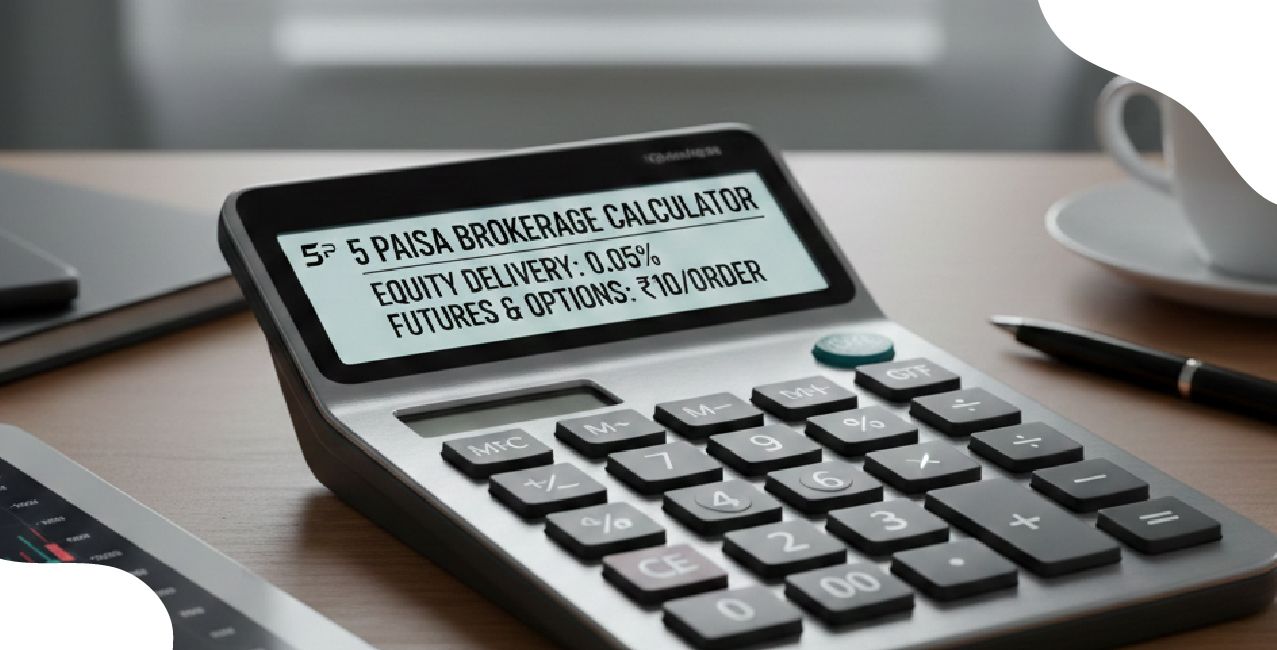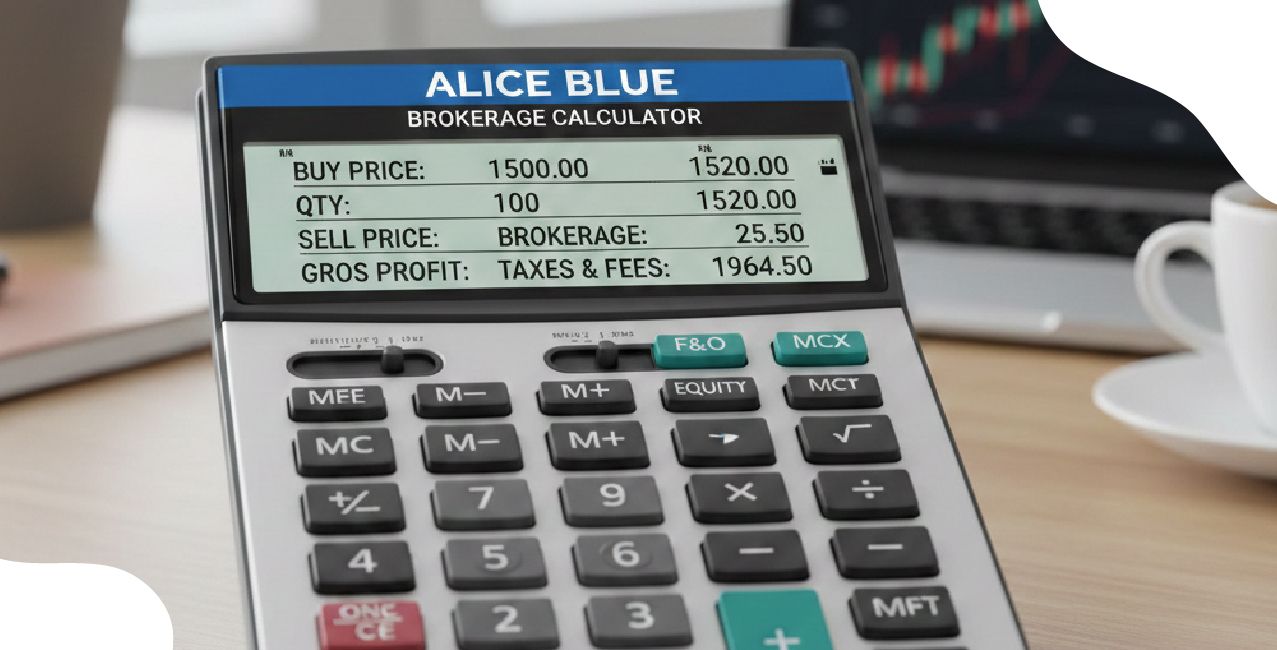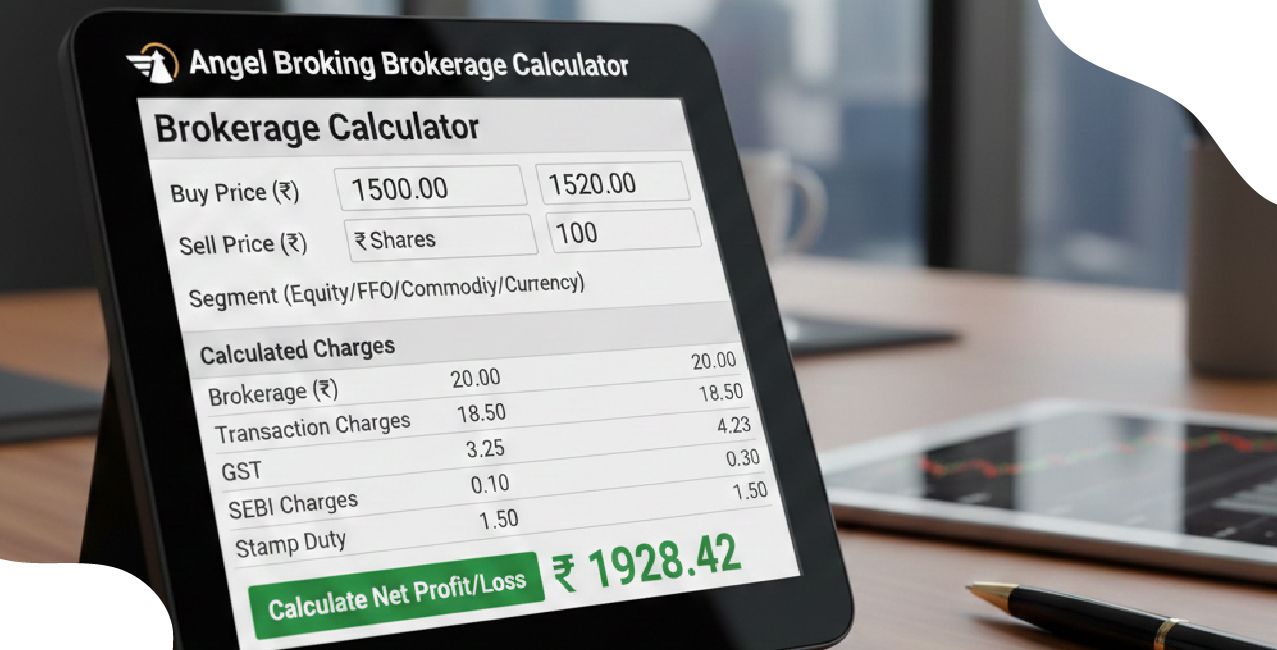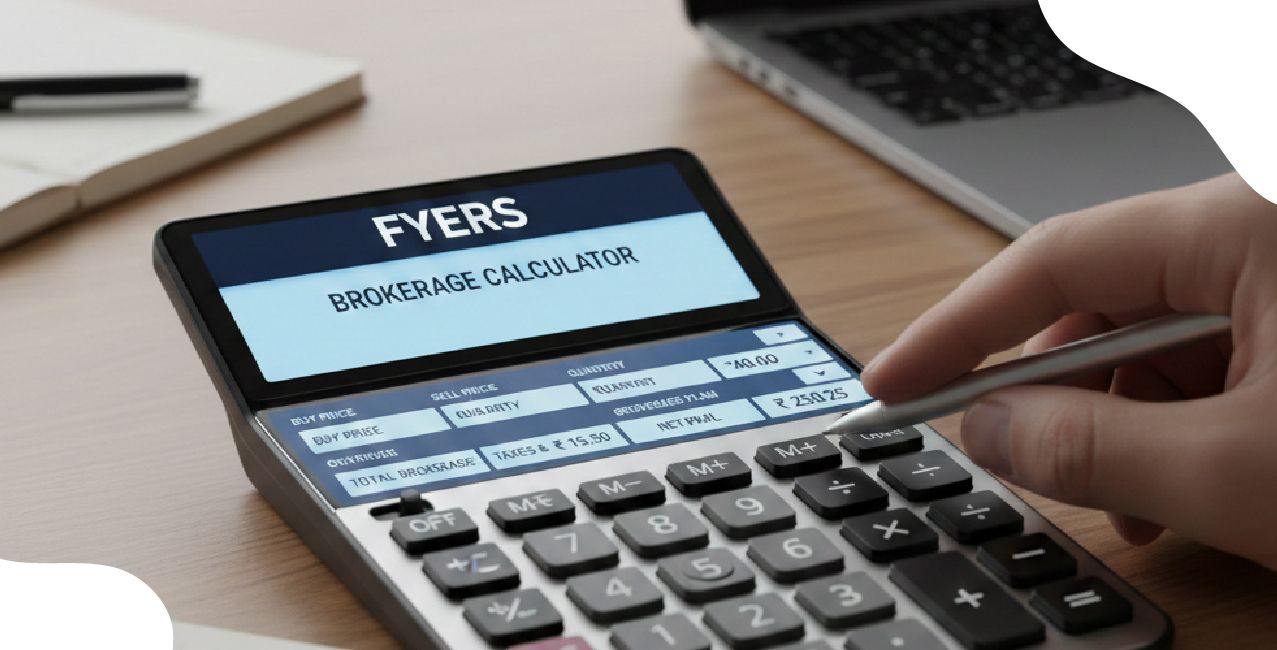How to Qualify for a Government-Backed Business Loan – Eligibility & Application Guide
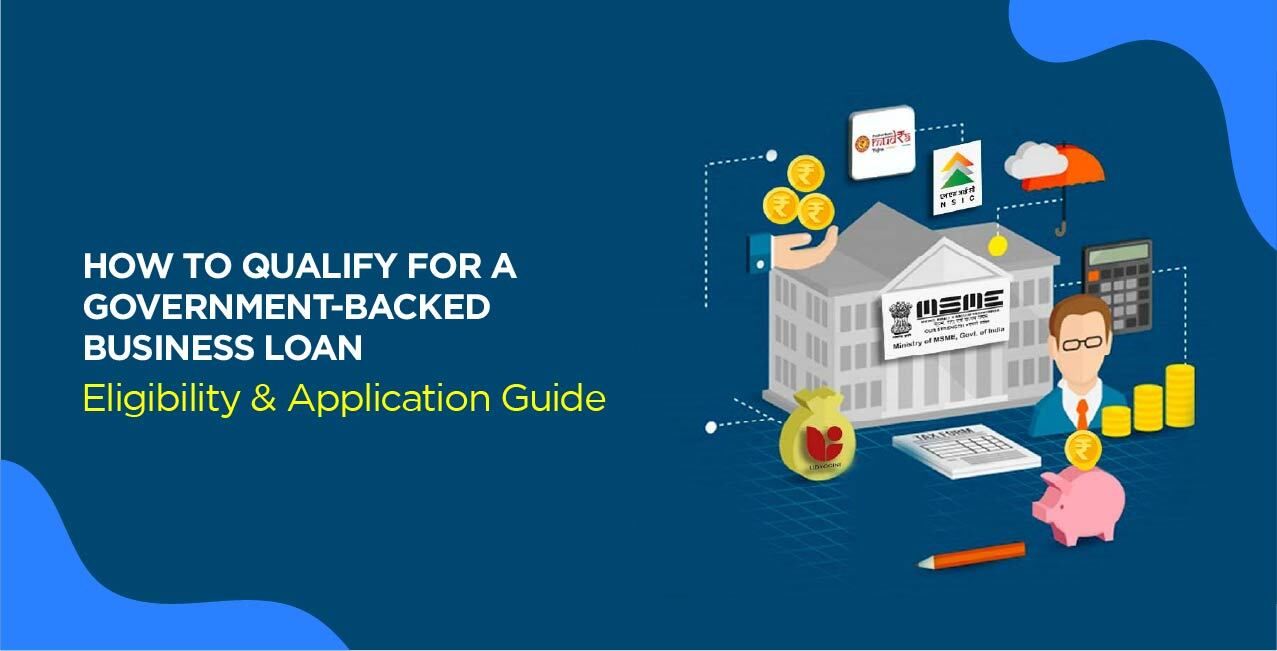
Check Your Loan Eligibility Now
By continuing, you agree to LoansJagat's Credit Report Terms of Use, Terms and Conditions, Privacy Policy, and authorize contact via Call, SMS, Email, or WhatsApp
In 2025, securing a government-backed business loan in India will be a viable option for entrepreneurs who want to start or expand their ventures.
For instance, under the Pradhan Mantri MUDRA Yojana (PMMY), micro and small enterprises can access loans up to ₹10,00,000 categorized into 'Shishu' (up to ₹50,000), 'Kishor' (₹50,001 to ₹5,00,000), and 'Tarun' (₹5,00,001 to ₹10,00,000).
These loans typically have tenures ranging from 2 to 6 years and interest rates between 14.99% and 26%. Eligibility often requires a minimum annual turnover of ₹50,00,000, a CIBIL score of 700 or above, and processing fees between 2% and 4%.
According to The Times of India, the average ticket size of MSME loans has grown from ₹37,70,000 in FY20 to ₹72,40,000 in FY22. Understanding these parameters is essential for aspiring borrowers to process the application successfully.
Determine Your Eligibility Criteria
Getting a government-backed business loan in India depends on meeting key eligibility requirements. Banks and financial institutions look at your business’s financial health before approving a loan.
Read More – How to Get a Business Loan with a Low Turnover
Most government schemes require businesses to have a minimum annual turnover of ₹50,00,000 and a CIBIL score of 700+. If your company meets these basic requirements, the next step is understanding other factors that can affect your eligibility.
- Business Age Matters: Most loan schemes require your business to be at least 1-3 years old to qualify.
- Turnover Requirement: A business must generate at least ₹50,00,000 annually for larger loans.
- Loan Amount Range: Government loans usually offer between ₹5,00,000 and ₹2 crore, depending on the scheme.
- Credit Score Importance: A CIBIL score of 700+ improves the chances of approval.
- Interest Rates Vary: Expect interest rates between 14.99% and 26%, depending on your credit profile.
- Processing Fees: Lenders charge a processing fee of 2%-4% of the total loan amount.
- Repayment Period: Loan tenures range from 2 to 6 years, so choose one that fits your cash flow.
Understanding these eligibility factors helps you apply for the right loan with confidence.
Choose the Right Loan Program
Not all government-backed business loans are the same. Different schemes cater to various business needs. Whether you're a small startup or an expanding enterprise, selecting the right loan program is key to securing funding.
1. MUDRA Loan for Small Businesses
Micro, Small & Medium Enterprises (MSMEs) can apply for MUDRA loans, which offer funding up to ₹10,00,000 under categories like Shishu, Kishor, and Tarun. These loans are best for small businesses needing working capital.
2. Stand-Up India for Women & SC/ST Entrepreneurs
This scheme offers loans between ₹10,00,000 and ₹1 crore to women and SC/ST entrepreneurs. The repayment tenure can go up to 7 years, with an initial moratorium period of 18 months.
3. Credit Guarantee Fund Trust for Micro and Small Enterprises (CGTMSE)
For businesses struggling with collateral, CGTMSE provides loans up to ₹2 crore without needing a security deposit. The government acts as a guarantor, making it easier to access credit.
4. SIDBI's MSME Loan for Expansion
The Small Industries Development Bank of India (SIDBI) provides loans ranging from ₹10,00,000 to ₹50 crore for businesses looking to expand operations, invest in new machinery, or increase workforce.
5. MSME Loan from Public Sector Banks
Banks like SBI, Bank of Baroda, and Punjab National Bank offer MSME loans under government initiatives. These loans require businesses to maintain a turnover of at least ₹50,00,000 and have an interest rate between 14.99% and 26%.
Loan Scheme Comparison Table:
Loan Scheme | Loan Amount | Eligibility | Repayment Tenure |
MUDRA Loan | Up to ₹10,00,000 | MSMEs, small businesses | 3-5 years |
Stand-Up India | ₹10,00,000 - ₹1 crore | Women, SC/ST entrepreneurs | Up to 7 years |
CGTMSE | Up to ₹2 crore | No collateral needed | Varies |
SIDBI MSME Loan | ₹10,00,000 - ₹50 crore | Business expansion | Up to 10 years |
MSME Loans (PSUs) | ₹5,00,000 - ₹2 crore | Minimum turnover ₹50,00,000 | 2-6 years |
Selecting the right loan scheme ensures your business gets the best financial support based on its needs.
Maintain a Strong Credit Score
A good CIBIL score (700+) is one of the most critical factors in securing a business loan. Before approving the loan, lenders check your repayment history, outstanding debts, and credit utilisation. A weak credit score can result in loan rejection or higher interest rates.
Amit, a small business owner from Mumbai, learnt this hard. He applied for a ₹50,00,000 loan but had a CIBIL score of 650, so the bank rejected his application.
He then improved his credit score by clearing old debts, avoiding missed payments, and limiting unnecessary credit card usage. Six months later, his CIBIL score improved to 720, and he successfully secured the loan at a lower interest rate of 16% instead of 22%.
To maintain a strong credit score:
- Pay EMIs and credit card bills on time. Late payments negatively impact your score.
- Keep your credit utilisation low. Avoid using more than 30% of your credit limit.
- Avoid multiple loan applications. Each hard inquiry can lower your CIBIL score.
- Monitor your credit report regularly. Look for errors or fraudulent activities.
A high credit score helps secure a loan and ensures better interest rates and flexible repayment terms.
Prepare a Detailed Business Plan
A well-structured business plan increases your chances of securing a government-backed loan. Lenders want a clear roadmap of your business goals, revenue strategy, and repayment capability. A business plan shows that your company is financially stable and can repay the loan within 2–6 years.
For example, a Chennai-based entrepreneur, Ramesh,, applied for a ₹25,00,000 loan to expand his textile unit. The bank initially rejected his application due to an unclear revenue model.
He then revised his plan to include monthly revenue projections, marketing strategies, and expansion costs. This time, the bank approved his loan at an interest rate of 16%, allowing him to scale his business.
To strengthen your loan application, ensure your business plan includes:
- A clear executive summary of your company’s vision.
- Financial projections for 3-5 years to show expected growth.
- Breakdown of expenses such as rent, salaries, and inventory costs.
- A repayment strategy detailing how the loan will be used and repaid.
Show Proof of Business Revenue and Stability
Before approving a loan, lenders need to confirm that your business earns consistent revenue. Banks may increase the interest rate or shorten the loan tenure if your revenue fluctuates too much.
1. Minimum Annual Turnover Requirement
Most government-backed loans require businesses to have an annual turnover of at least ₹50,00,000. If your company makes less than this, you may need to improve revenue records before applying.
2. Bank Statements and GST Returns
Banks check bank statements and GST filings from the last 12–24 months to ensure steady cash flow. If your GST returns show regular revenue, your chances of approval improve.
3. Profit and Loss Statement
This statement gives a snapshot of your income and expenses. If your profits increase each quarter, banks will consider you a low-risk borrower.
4. Client Contracts and Invoices
If you have long-term contracts with clients, include them as proof of stable income. For example, an IT firm with ₹1 crore worth of signed contracts will have a higher chance of loan approval.
5. Tax Payment History
Paying taxes on time builds credibility. Lenders see this as a sign of financial discipline if your business regularly files ITR and GST returns.
Revenue Documentation Comparison Table:
Document Type | Purpose | Time Required |
Bank Statements | Shows cash flow stability | Last 12-24 months |
GST Returns | Confirms revenue generation | Last 1-2 years |
Profit & Loss Statement | Demonstrates profitability trends | Last 3 financial years |
Client Contracts | Proves future revenue expectations | Ongoing and upcoming |
Tax Payment Records | Establishes financial discipline | Last 3-5 years |
Keeping these documents ready will make your loan application process faster and smoother.
Organise Financial Documents
Having all financial documents in place prevents delays in the loan approval process. Many business owners face rejections because of missing papers or errors in documentation.
1. Income Tax Returns (ITR)
Lenders require ITRs for at least 3 financial years to verify income consistency. If your ITR shows ₹50,00,000+ turnover, your loan application will be stronger.
2. Balance Sheet and Audit Reports
A well-maintained balance sheet helps banks assess their assets, liabilities, and profit margins. Many businesses hire certified accountants to prepare accurate reports.
3. Business Registration and Licenses
Your business must have a valid registration certificate. Depending on your industry, you may also need FSSAI, MSME, or GST registrations.
4. Collateral or Guarantor Documents
Some loans require collateral like property papers, gold, or fixed deposit receipts. If applying under a collateral-free scheme like CGTMSE, ensure you meet all non-collateral eligibility criteria.
5. Loan Application Form
A correctly filled loan application form is essential. Even a minor error, like an incorrect PAN or business name mismatch, can delay approval.
Also Read - MSME Alert: New Govt Loan Schemes For 2025 Growth
Organizing these documents before applying ensures a quick approval process with no last-minute complications.
Meet Collateral and Guarantee Requirements
Most government-backed loans in India offer both collateral-free and secured loan options. If you are applying for a loan above ₹10,00,000, banks may ask for collateral or a guarantor to reduce the risk.
Understanding these requirements before applying will help you prepare the necessary documents and improve your chances of approval.
1. Collateral-Free Loans for Small Businesses
Many MSME-focused schemes like CGTMSE and MUDRA loans provide funding without requiring collateral. These loans usually cover amounts between ₹5,00,000 to ₹2 crore, with interest rates ranging from 14.99% to 26%.
2. Property and Fixed Asset Pledging
For larger business loans, banks may require you to pledge commercial property, land, machinery, or inventory. The value of the collateral should cover at least 75%-100% of the loan amount.
3. Personal or Third-Party Guarantee
In some cases, businesses must provide a personal guarantee from the owner or an external guarantor. This is common for loans above ₹50,00,000, where banks need assurance that repayments will continue even if the business faces losses.
4. Gold or Fixed Deposit as Collateral
Some banks accept gold assets, fixed deposits, or insurance policies as collateral for loans. This is a good option if you lack business assets but have personal financial holdings.
5. Loan-to-Value (LTV) Ratio
LTV determines how much loan a lender offers against the collateral provided. The lower the LTV, the lower the risk.
Loan-to-Value (LTV) Ratio Comparison Table:
Collateral Type | LTV Ratio (Approx.) | Loan Amount Range |
Commercial Property | 75%-100% | ₹10,00,000 - ₹2 crore |
Machinery & Equipment | 50%-75% | ₹5,00,000 - ₹50,00,000 |
Fixed Deposits (FDs) | 90%-95% | ₹5,00,000- ₹1 crore |
Gold Assets | 75%-85% | ₹1,00,000- ₹50,00,000 |
Personal Guarantee | No fixed LTV | Varies by case |
Preparing the right collateral or guarantee documents reduces approval delays and increases loan eligibility.
Conclusion
Securing a government-backed business loan in 2025 is achievable if you meet the eligibility criteria, choose the right loan scheme, and prepare strong financial documents. A CIBIL score of 700+, a minimum turnover of ₹0,00,000, and a detailed business plan are key to approval.
If your loan exceeds ₹10,00,000, be prepared to provide collateral or a guarantor. Understanding legal and regulatory requirements also ensures a smooth application process.
By staying prepared, your business can access funding at competitive interest rates ranging from 14.99% to 26% and grow efficiently. Start your application with confidence and secure the financial support needed for success.
FAQs
1. What is the minimum CIBIL score required for a government-backed business loan?
Most government loan schemes require a CIBIL score of 700 or higher for approval. A higher score improves your chances of getting lower interest rates.
2. Do I need collateral for a government business loan?
Loans like CGTMSE and MUDRA loans offer funding up to ₹2 crore without collateral. However, loans exceeding ₹10,00,000 in some schemes may require property, gold, or fixed deposits as collateral.
3. What is the interest rate for government-backed business loans?
The interest rate varies between 14.99% and 26%, depending on the loan scheme, business turnover, and credit profile.
4. How long does it take to get approval for a business loan?
Loan approval time depends on the lender, but most government-backed loans take 2-4 weeks if you provide all required documents, such as GST returns, bank statements, and tax filings.
5. Can a startup qualify for a government business loan?
Yes, startups can apply for schemes like MUDRA and SIDBI loans, but they must show a viable business plan, financial projections, and initial revenue records to qualify.
Other Business Loan Pages | ||
About the author

LoansJagat Team
Contributor‘Simplify Finance for Everyone.’ This is the common goal of our team, as we try to explain any topic with relatable examples. From personal to business finance, managing EMIs to becoming debt-free, we do extensive research on each and every parameter, so you don’t have to. Scroll up and have a look at what 15+ years of experience in the BFSI sector looks like.
Subscribe Now
Related Blog Post
Recent Blogs
All Topics
Contents
Quick Apply Loan
Consolidate your debts into one easy EMI.
Takes less than 2 minutes. No paperwork.
10 Lakhs+
Trusted Customers
2000 Cr+
Loans Disbursed
4.7/5
Google Reviews
20+
Banks & NBFCs Offers
Other services mentioned in this article




